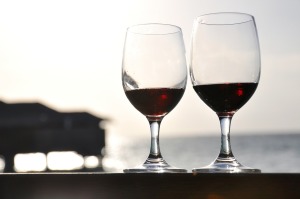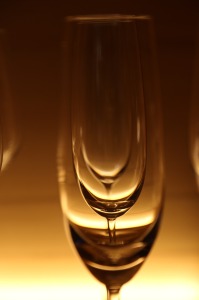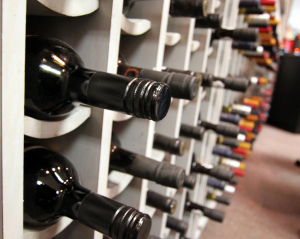Match Made In Heaven
Music soothes and satisfies just as wine does. Some bad music is hard on the ears just like poorly made wines can be rather hard on the palate. It’s not uncommon to see wine publications matching a particular artist or CD to a specific wine. Problem is, no one ever explains how they come up with such random pairings.
 Music influences the way wine tastes. This seems obvious, and is the reason professional tastings are done in silence. If food, glassware, ambient temperature, perfume and the people sitting next to you all influence the taste of wine, why wouldn’t music?
Music influences the way wine tastes. This seems obvious, and is the reason professional tastings are done in silence. If food, glassware, ambient temperature, perfume and the people sitting next to you all influence the taste of wine, why wouldn’t music?
Music comes in many forms. Amongst many others, there is the emotion and complexity of classical, the syncopation and stimulation of jazz, the searing guitar riffs and deep bass of heavy metal and the gentle and soothing appeal of folk.
Wine too comes in many forms, so how does one decide which music to listen to whilst sipping a glass of wine? I suspect most of us just choose what we are in the mood for based on the selections we have at our disposal. Do we choose the music first and the wine after, or vice versa? Perhaps there is actually no connection between the two and the individual chooses music based on one desire, and wine based on another entirely separate need. If like wine and food, there is an opportunity to reach deeper into the pleasure centres of our brains by pairing music and wine more consciously and dare I say, correctly?
 For the sake of argument, let’s say that wine & music moods might be connected and when properly matched, like food, the resulting combination can enhance the overall enjoyment of both. Here are some basic observations I’ve made when considering the music and wine partnership:
For the sake of argument, let’s say that wine & music moods might be connected and when properly matched, like food, the resulting combination can enhance the overall enjoyment of both. Here are some basic observations I’ve made when considering the music and wine partnership:
Low Frequency Sound (e.g. bass, deep synth) = Full Bodied Wine
High Frequency Sound (e.g. violin, falsetto vocals) = High Acid or Sparkling Wine
Rich Satisfying Sound (e.g. a powerful symphony) = Complex Dry (or Sweet) Wine
Simple Satisfying Sound (e.g. acoustic guitar, solo adagios) = Mellow, Smooth Wine
Abrasive Loud Sound (e.g. rock guitar solo, screaming voice) = Tannic or Bitter Wine
Fast Paced, Energetic Sound (e.g. disco or upbeat jazz music) = Fruity, Easy-Drinking Wine
And according to Wired, a new study led by Adrian North of Heriot-Watt University adds to this indictment of the tongue, showing that our perception of wine is deeply influenced by the music playing in the background. The tongue thinks it is giving us the grape juice straight — that it’s in charge of our alcoholic reality — but it’s actually a servant of our smarter senses, which help us fill in the perceptual gaps.
 And this is why the ambience of a restaurant matters. All those rituals of the table are not mere routines. Instead, they help us make sense of the incomplete information coming from the tongue. For instance, when we eat a meal in a fancy place, full of elaborate place settings, fine porcelain and waiters wearing tuxedos, the food is going to taste different than if we ate the same food in a cheap diner. (This helps explain why people spend more money when restaurants play classical music instead of pop tunes.) Because the music matters, but so does everything else. The tongue is easy to dupe.
And this is why the ambience of a restaurant matters. All those rituals of the table are not mere routines. Instead, they help us make sense of the incomplete information coming from the tongue. For instance, when we eat a meal in a fancy place, full of elaborate place settings, fine porcelain and waiters wearing tuxedos, the food is going to taste different than if we ate the same food in a cheap diner. (This helps explain why people spend more money when restaurants play classical music instead of pop tunes.) Because the music matters, but so does everything else. The tongue is easy to dupe.
Let’s say you’re going to listen to a Mozart piano, violin and cello trio. Do you choose a Muscadet, light and crisp? Or say you’re going to listen to one of Beethoven’s late quartets, among the most soulful of all music. Is that the time to pull out the 1929 Romanee-Conti?
Open that bottle, turn on the iPod and let’s find out.



 0
0